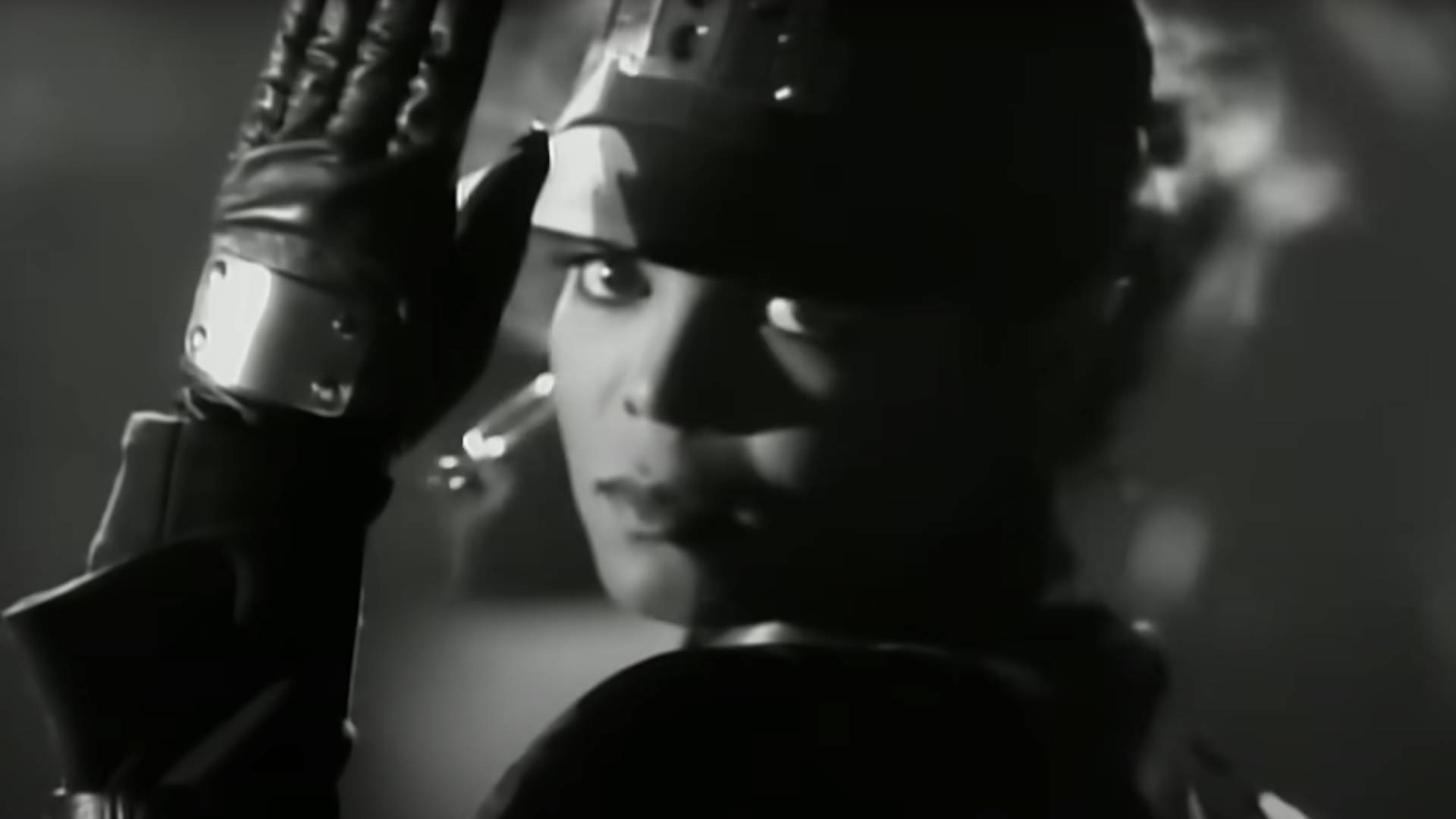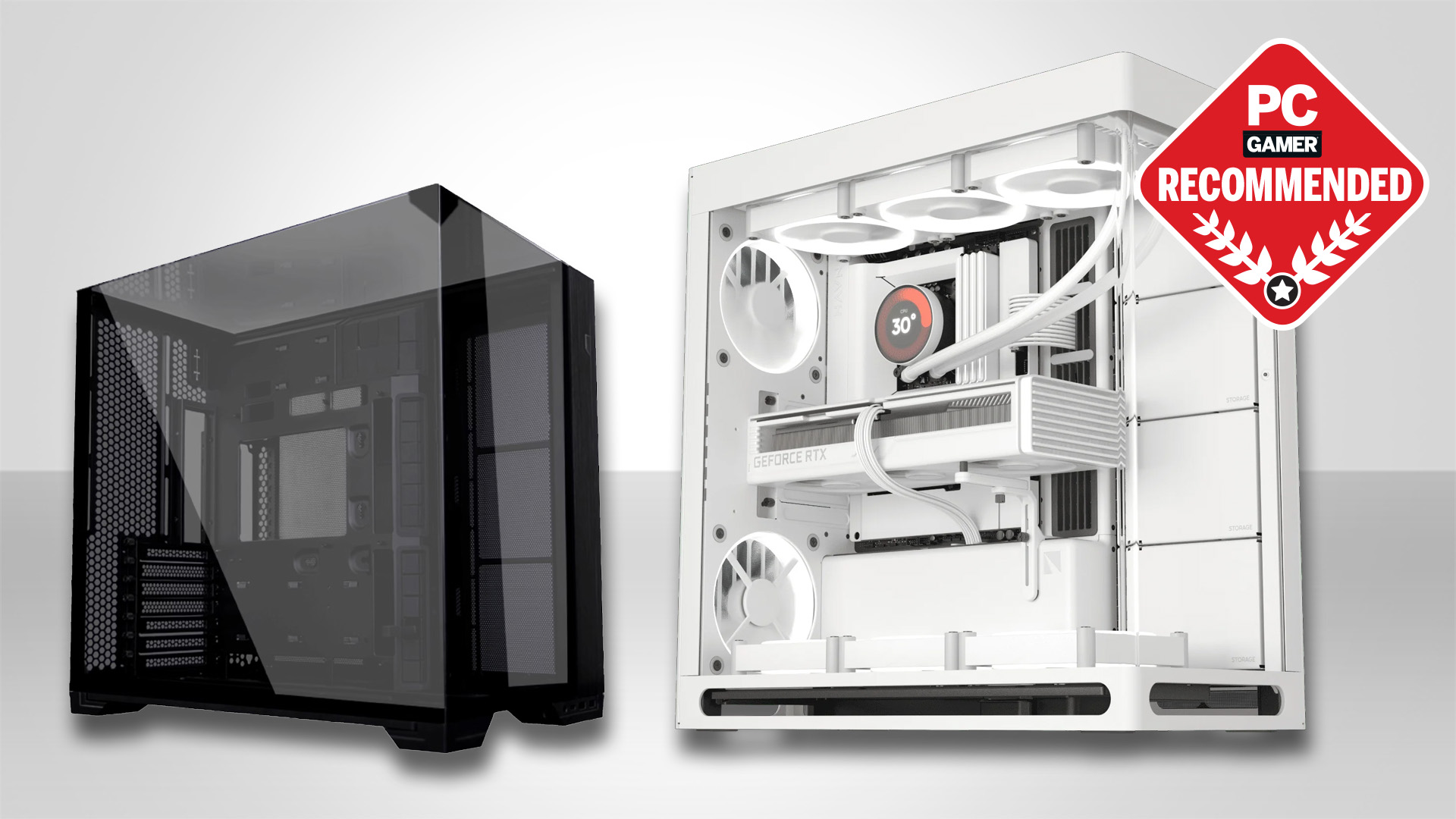Turns out Janet Jackson's laptop-crashing cursed bassline was the scourge of notebook makers for at least half a decade
No struggle, no progress.

In a recent campaign of TTRPG City of Mist, I played a world-weary lounge singer increasingly finding the watery despair captured in the poem Lorelei was sending unwelcome ripples through her life. Perhaps needless to say, the idea of a songstress who harbours a voice with devastating power is a creative idea I find extremely compelling. So when I caught wind of a song with the power to crash laptops, I knew I had to dive deeper.
It sounds like an urban legend but for years vendors of certain laptop models (thankfully none of those currently on our best gaming laptop list) would quake in fear over a particular melody: Rhythm Nation by Janet Jackson. Once upon a time, playing this 1989 banger through certain laptop speakers wouldn't just crash that specific laptop, but could also temporarily compromise nearby laptops from different manufacturers within shoulder-shimmying, head-bobbing distance. Jacob wrote about it when this bizarre tech vulnerability first came to light, but now we know that this absolute belter was a cursed melody to some laptop vendors for half a decade (via PC World).
The story originally surfaced second-hand in a 2022 blog post from Raymond Chen, explaining that after a great deal of testing, the cause of the crashes was isolated to the sound of the song itself. It turns out 1989's Rhythm Nation harbours the resonant frequency for components within 5,400 RPM hard drives, causing the moving parts of the hard drive to vibrate in arcs that would gradually sweep wider than intended. Ultimately, sustained exposure to the resonant frequency created enough read errors to crash some laptops' operating systems—David Plummer, another Microsoft alumnus, breaks down how this works in his own retelling of the story.
As for what specific part of the song is doing the laptop crashing, Chen's follow-up post points to a brilliant musical analysis by Adam Neely; to summarise in a few words from someone who is definitely not a music theorist, Rhythm Nation's bassline is just that powerful, with a resonant peak of about 84.2 Hz.
Common Vulnerabilities and Exposures (CVE) describes the issue as affecting laptops and PCs from "approximately 2005 and later." To combat it, Microsoft wrote some Digital Signal Processor code to effectively filter out the offending frequencies on Windows XP machines. To be clear, this wasn't a bit of code specifically targeting Jackson's optimistic bop about the uniting power of music, but a notch filter intended to prevent speakers from playing all instances of the laptop crashing resonant frequency.
So, how long was that bit of code in effect? Well, Chen wrote one more followup blog this month that revealed the filter was still present until at least the launch of Windows 7 in 2009. At this time, Microsoft imposed a new rule requiring that users must have the option to disable Audio Processing Objects (APOs)—like the aforementioned frequency filtering code. That's about half a decade of Microsoft and laptop vendors attempting to circumvent Rhythm Nation-induced crashes.
The vendor of the primarily affected laptops applied for an exception, fearing that the bounce back of the bass might not just physically damage their products but also their reputation. On these grounds, the exemption was granted—meaning that out there somewhere a vendor of HDD laptops may still be haunted by the incredible bassline of Rhythm Nation.
Keep up to date with the most important stories and the best deals, as picked by the PC Gamer team.
Best SSD for gaming: The best speedy storage today.
Best NVMe SSD: Compact M.2 drives.
Best external hard drive: Huge capacities for less.
Best external SSD: Plug-in storage upgrades.

Jess has been writing about games for over ten years, spending the last seven working on print publications PLAY and Official PlayStation Magazine. When she’s not writing about all things hardware here, she’s getting cosy with a horror classic, ranting about a cult hit to a captive audience, or tinkering with some tabletop nonsense.
You must confirm your public display name before commenting
Please logout and then login again, you will then be prompted to enter your display name.


